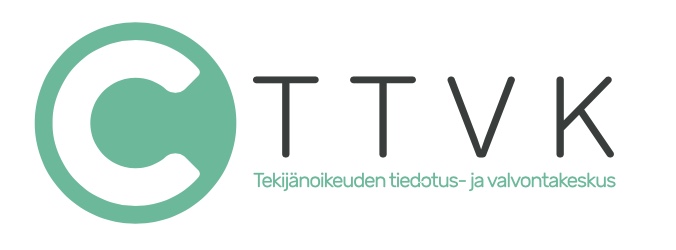 Watching, listening and playing content from illegal sources has increased among people under the age of 25, according to the Copyright Barometer survey by Taloustutkimus Oy, taken in October 2023 for the Copyright Information and Monitoring Center (TTVK) of Finland. This 17th annual survey examined the use of content and attitudes towards copyright and piracy.
Watching, listening and playing content from illegal sources has increased among people under the age of 25, according to the Copyright Barometer survey by Taloustutkimus Oy, taken in October 2023 for the Copyright Information and Monitoring Center (TTVK) of Finland. This 17th annual survey examined the use of content and attitudes towards copyright and piracy.
Attitudes related have remained mostly unchanged: more than half (52%) still do not approve of any form of piracy, although that’s down from the 2022 survey (58%). More than a quarter of Finns (28%) consider it acceptable to watch music or programs uploaded without permission to a legal streaming service such as YouTube.
Overall, 13 percent of the respondents approve of downloading music, movies, TV series or books placed on the Internet without permission for personal use. 11 percent stream from illegal services themselves, up from 8% in 2022.
In general, younger consumers considered piracy-related behavior to be more acceptable than their older peers. A quarter (25%) of 15–24-year-olds say that they or a family member have watched, listened to or played material offered on illegal services. A year ago, the corresponding share was 16%.
Consumers value copyright
The majority of Finns considered copyright to be an important issue in 2023. 61% completely agree that copyright is important, while 27% “somewhat agree.” Interestingly, half of those surveyed felt that copyrights were ‘enabling’ rather than ‘restrictive;’ up from 44% last year.
In fact, only 6 percent of Finns consider royalties to be too high, while a total of over a third of Finns (35%) consider them too low. Paradoxically, given that younger consumers have more permissive attitudes about piracy, 25-34-year-olds consider compensation to be too small; as do people living in large towns and southern Finland.
Almost three out of four respondents (72%) agree with the statement that a person guilty of illegal distribution should be obliged to pay the creators of the works compensation according to the scope of the infringement, while more than two out of three (67%) respondents are of the opinion that the copyright holder should be able to find out who infringes his rights anonymously on the Internet.
Attitudes about AI and copyright
Almost three out of four (72%) respondents felt that the personal style of a well-known artist or performer should not be used in content produced by artificial intelligence without proper permission and compensation.
A little over a quarter (27%) are of the opinion that content produced by artificial intelligence should be protected and subject to compensation in the same way as works made by humans. More than a third (35%) disagree with this. By contrast, US regulators have already settled this issue, saying that AI-generated content is not protected by copyright.
Methodology
The results are based on the 17th annual Copyright Barometer conducted by Taloustikkumas on behalf of the Copyright Center for Copyright Information and Control. The research material was collected in the form of personal interviews and an online survey as part of Taloustuktuikma’s Omnibus study. The data collection was carried out between October 8 and 23, 2023, and the number of survey respondents was a total of 1082 people. The target group was the population aged 15–79, excluding the province of Åland.
Further reading
Copyright Barometer 2023: Copyright. Report. October 31, 2023. Tekijänoikeusbarometri_AK, Copyright Information and Control Center, Finland
Copyright Barometer 2023: Piracy. Report. October 31, 2023. Tekijänoikeusbarometri_AK, Copyright Information and Control Center, Finland
The Copyright Information and Monitoring Center (TTVK) is a non-profit, generally accepted registered association that broadly represents operators in the creative fields. TTVK’s mission is to support the monitoring of the copyrights of the right holders represented by its member organizations by actively intervening in piracy both through preventive measures and the enforcement of the Copyright Act. In addition, TTVK’s mission is to increase general copyright awareness by implementing planned and objective communication and by providing copyright training and advice.












